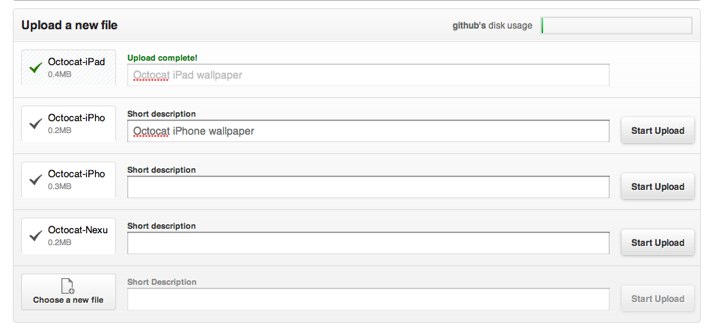New uploader & downloads screen
Update: Uploads have been deprecated Not too long ago we rolled out the one true downloads button, but unfortunately the Downloads page was still left unattended. Well, today we’re rolling…
Update: Uploads have been deprecated
Not too long ago we rolled out the one true downloads button, but unfortunately the Downloads page was still left unattended. Well, today we’re rolling out a totally new downloads page – including a completely rewritten uploader.
You can check out the new downloads screen on pages like brotherbard’s gitx fork.
The new uploader
Most importantly, we’ve completely rewritten the file uploader. So when you go to a repository that you have pushable access to, you’ll see a new interface.

There were a few significant updates:
- The uploader actually works (yay!)
- Upload multiple files at a time (you can select multiple files in the file dialog or click choose file multiple times)
- Better error handling (no more ambiguous alerts)
What should you use the downloads section for?
The downloads section is a great place to put things that are related to your project, but not necessarily the code. Some examples:
- PDF documents explaining the technology
- Binary distributions of software
- Minified versions of javascript files
- PSD Mockups
- SQL or data dumps
And don’t forget that you can automatically generate zip and tar.gz packages of your codebase by using git tag and they’ll show up on the downloads page.
Written by
Related posts

GitHub availability report: January 2026
In January, we experienced two incidents that resulted in degraded performance across GitHub services.

Pick your agent: Use Claude and Codex on Agent HQ
Claude by Anthropic and OpenAI Codex are now available in public preview on GitHub and VS Code with a Copilot Pro+ or Copilot Enterprise subscription. Here’s what you need to know and how to get started today.

What the fastest-growing tools reveal about how software is being built
What languages are growing fastest, and why? What about the projects that people are interested in the most? Where are new developers cutting their teeth? Let’s take a look at Octoverse data to find out.